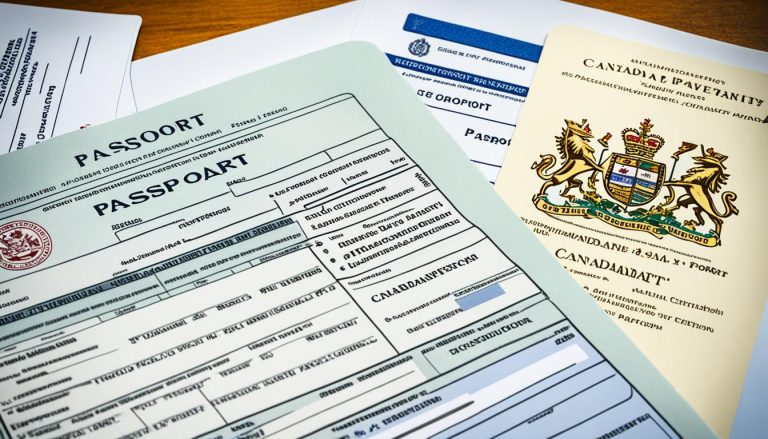What is the age of consent in Canada? This question may seem simple, but the answer is more complex than one might think. Canadian sexual consent laws are complex and can vary depending on various factors, such as the age of the individuals involved and the nature of the relationship. Understanding these laws is essential to avoid legal complications and to ensure consensual, safe, and respectful relationships.
In this article, we will dive into the intricacies of Canadian sexual consent laws and uncover the legal facts surrounding the age of consent in Canada. Whether you’re curious about the topic or want to ensure you’re abiding by the law, this article will provide you with the information you need. So, let’s get started and shed light on the age of consent in Canada!
What is the Age of Consent in Canada?
The age of consent in Canada is a fundamental legal principle designed to protect minors from sexual exploitation and ensure their safety. As of 2019, the age of consent is set at 16 years old, with exceptions for close-in-age relationships. These laws establish boundaries for consensual sexual activity between individuals, outlining specific age limits within which minors can legally engage in sexual acts with peers.
However, it’s essential to recognize that consent should always be informed, voluntary, and enthusiastic, regardless of age. Understanding and respecting the age of consent laws in Canada are crucial for both minors and adults to navigate relationships and sexual encounters responsibly within the confines of the law, thereby contributing to the promotion of a safer environment for all individuals.
Consenting Sexual Activity Among Minors
In Canada, minors have the ability to engage in consensual sexual activity with certain peers, provided they meet specific age requirements. Understanding these age limits is crucial for individuals and ensures compliance with the law. Let’s explore the legal framework surrounding the age of consent and the age of majority in Canada.
Age of Consent for Sex in Canada
A person who is 14 years old can consent to sexual activity with someone up to the age of 18. Similarly, a person who is 15 years old can consent to sexual activity with someone up to the age of 19. For children who are 12 years old, they can legally consent to sexual activity with peers up to the age of 13. Additionally, a child who is 13 years old can legally consent to sexual activity with someone up to the age of 14.
It is important to note that these age limits outline the ability to consent to sexual activity, and not necessarily that a minor has given their consent in a specific situation. Consent should always be informed, voluntary, and given enthusiastically by all parties involved.
Age of Majority in Canada

While the age of consent refers to the ability to consent to sexual activity, the age of majority, which is the legal age at which an individual is considered an adult, varies across provinces and territories in Canada. In most provinces and territories, the age of majority is 18 years old. However, in Alberta, Manitoba, Ontario, Prince Edward Island, Quebec, and Saskatchewan, the age of majority is 19 years old.
Understanding the age of consent for sex and the age of majority is crucial for both minors and adults to navigate relationships and sexual encounters within the confines of the law.
Exceptions to the Age of Consent Law
The age of consent law in Canada includes exceptions to prevent sexual crimes against minors or sexual manipulation. These exceptions include cases where there is a sexual relationship between a person under 18 and an older person in a position of power, trust, dependency, or authority. This can include teachers, babysitters, coaches, tutors, and members of the clergy.
Sexual exploitation is also considered an exception, which includes prostitution, grooming, and soliciting videos or photos for pornography. In these cases, the judge must consider factors such as how the relationship developed and the age difference between the individuals.
These exceptions are in place to ensure the protection and well-being of minors, and to prevent situations where authority figures or individuals in positions of power may take advantage of young individuals.
Examples of Exceptions:
| Authority Figure | Age of the Minor | Factors Considered by the Judge |
|---|---|---|
| Teacher | Under 18 | Position of power and trust |
| Babysitter | Under 18 | Position of dependency |
| Coach | Under 18 | Position of authority |
| Tutor | Under 18 | Position of trust |
| Member of the Clergy | Under 18 | Position of power and authority |
In cases where these exceptions apply, the age difference and dynamics of the relationship will be taken into account by the judge when determining whether consent was given freely and willingly by the minor.
It is crucial to have these exceptions in place to safeguard minors and prevent potential sexual exploitation in situations where there may be an inherent power imbalance or manipulation.
Criminal Charges for Sexual Contact with a Minor

Engaging in a sexual relationship with a minor can lead to multiple criminal charges in Canada. The penalties for underage sexual activity and charges for sexual contact with a minor are severe. Depending on the length and nature of the relationship, individuals may face various criminal charges, including exposure, child pornography, and luring a child.
Exposing genital organs to a person under the age of 16 can result in up to 10 years in prison. This offense is taken seriously to protect minors from exploitation and ensure their safety. The law also addresses the production, distribution, and possession of child pornography. Making, distributing, or showing child pornography can lead to penalties ranging from 10 to 14 years in prison.
On the other hand, communicating with a minor online for the purpose of engaging in a sexual act can result in up to 14 years in prison. This legislation is in place to safeguard young individuals from online predators and to deter inappropriate interactions that can have long-lasting emotional and psychological effects on minors.
Penalties for Sexual Contact with a Minor
To provide a clearer overview of the penalties for sexual contact with a minor, the table below outlines the potential charges and the corresponding punishments under Canadian law:
| Offense | Potential Penalty |
|---|---|
| Exposing genital organs to a person under the age of 16 | Up to 10 years in prison |
| Making, distributing, or showing child pornography | Penalties ranging from 10 to 14 years in prison |
| Communicating with a minor online for the purpose of engaging in a sexual act | Up to 14 years in prison |
These penalties are meant to deter individuals from engaging in sexual activities with minors and to protect vulnerable individuals from exploitation. The severity of the penalties underscores the gravity with which the Canadian legal system views these offenses and emphasizes the importance of upholding the welfare and rights of minors.
By enforcing these penalties, Canada aims to send a strong message that it is committed to safeguarding the well-being of its youth. It is crucial for parents, educators, and members of the community to be aware of these laws to ensure the protection of minors and to contribute to a safer environment for all.
Case Study – Dale Eric Beckham
The case of Dale Eric Beckham provides a significant illustration of the impact of age of consent laws in Canada. In this case, Beckham, a 31-year-old man from Texas, traveled to Ottawa with the intention of meeting a 14-year-old boy he had connected with online. Their encounter led to engage in sexual activity, resulting in Beckham’s subsequent arrest.
At the time of the incident, Canada’s age of consent allowed for consensual sexual activity between individuals as young as 14, provided there was no position of authority or dependency. However, Beckham found himself facing charges related to possession of child pornography, as the boy involved was below the age of consent for anal intercourse.
This case brought attention to concerns surrounding child molesters taking advantage of Canada’s comparatively low age of consent. It underscored the importance of protecting minors from exploitation and prompted discussions about the appropriateness and potential consequences of such laws.
Key Takeaways
- The case of Dale Eric Beckham highlighted the potential risks associated with age of consent laws in Canada.
- Beckham, a 31-year-old man, traveled to Ottawa to meet a 14-year-old boy he had met online.
- Beckham was ultimately charged with possession of child pornography due to the boy’s age being below the age of consent for anal intercourse.
- Concerns were raised about child molesters exploiting Canada’s age of consent laws.
Criticism and Controversy
Age of consent laws in Canada have faced criticism from various groups. LGBT rights activists have expressed concerns regarding the laws’ lack of equality, specifically in relation to the age of consent for anal sex. The previous legislation set the age of consent for anal intercourse at 18, while the age of consent for other types of intercourse was 16. This discrepancy raised questions about fairness and LGBTQ+ rights.
Critics have also highlighted potential negative consequences of raising the age of consent. They argue that increasing the age of consent could result in decreased access to sexual health information for youth. By treating young people as incapable of making informed decisions about their own sexuality, some organizations believe that the legislation infringes upon their rights.
In response to these concerns, age of consent reform was implemented in Canada. In 2019, the age of consent was equalized at 16 for all types of sexual intercourse. This change addressed some of the criticisms raised by LGBTQ+ rights activists and other organizations. It aimed to ensure equality and protect the rights of young people to make decisions regarding their own sexuality.
Impact on LGBT Rights
The age of consent reform in Canada had a significant impact on the LGBTQ+ community. By equalizing the age of consent for all types of intercourse, the legislation recognized and respected the sexual autonomy of individuals regardless of their sexual orientation. This change promoted equality and eliminated the previous disparity in the age of consent for anal sex, ensuring that all consensual sexual relationships among young people are treated equally under the law.
Duty to Report and Obligations

Physicians in Canada have a duty to report situations involving age of consent violations if there are reasonable grounds to believe that a child is being abused. This duty is imposed by legislation in each province and territory, ensuring that healthcare professionals play a crucial role in safeguarding the well-being of minors.
When it comes to reporting sexual activity with a minor, physicians must carefully assess the specific circumstances, including the age of the minor and the nature of the relationship. The reporting obligations may vary, requiring physicians to exercise their professional judgment in determining the appropriate course of action.
In situations where a minor’s parent is unable or unwilling to protect the child, physicians may be required to report to a child protection agency. This step is crucial in ensuring the child’s safety and providing them with the necessary support and intervention.
It is important to note, however, that the duty to report to the police depends on the specific provincial or territorial legislation. Each jurisdiction may have its own guidelines and requirements for reporting to law enforcement authorities.
Reporting Process and Confidentiality
When reporting age of consent violations, physicians are generally expected to follow a clear and systematic process. They should gather relevant information and evidence, document their observations and concerns, and adhere to the reporting procedures outlined by their respective jurisdiction.
Confidentiality is a fundamental principle in healthcare, and physicians must balance their duty to report with the need to maintain patient confidentiality. They should take reasonable steps to protect the privacy of the individuals involved while fulfilling their reporting obligations in accordance with the law.
It is essential for physicians to stay informed about the specific reporting obligations and procedures applicable in their province or territory. By understanding their role and responsibilities, healthcare professionals can effectively contribute to the protection and well-being of minors in cases involving age of consent violations.
Reporting Obligations by Province/Territory
| Province/Territory | Reporting to Child Protection Agency | Reporting to Police |
|---|---|---|
| Alberta | Yes | Depends on the circumstances |
| British Columbia | Yes | Depends on the circumstances |
| Manitoba | Yes | Depends on the circumstances |
| New Brunswick | Yes | Depends on the circumstances |
| Newfoundland and Labrador | Yes | Depends on the circumstances |
| Nova Scotia | Yes | Depends on the circumstances |
| Ontario | Yes | Depends on the circumstances |
| Prince Edward Island | Yes | Depends on the circumstances |
| Quebec | Yes | Depends on the circumstances |
| Saskatchewan | Yes | Depends on the circumstances |
| Northwest Territories | Yes | Depends on the circumstances |
| Nunavut | Yes | Depends on the circumstances |
| Yukon | Yes | Depends on the circumstances |
Conclusion
In conclusion, the age of consent in Canada is 16, with exceptions for close-in-age relationships. These laws serve to protect minors from sexual exploitation and ensure their safety. Engaging in sexual activity with a minor can lead to serious criminal charges, including exposure, child pornography, and luring a child. It is crucial for individuals to be aware of their obligations to report age of consent violations, and for physicians to understand their duty to report to child protection agencies.
The reforms to the age of consent laws in Canada have been implemented to address concerns and uphold the well-being of young people. These laws aim to prevent the sexual exploitation of minors and provide a legal framework to protect them. It is essential for all individuals to understand and respect these laws, as they play a critical role in safeguarding the rights and welfare of young Canadians.
Overall, the legal implications surrounding the age of consent laws in Canada underscore the need for responsible behavior and the importance of protecting our youth. By having these laws in place and enforcing them, Canada is taking significant steps towards creating a safer environment for young people.
FAQ
What is the age of consent in Canada?
The age of consent in Canada is 16 years old.
Are there any exceptions to the age of consent law?
Yes, there are close-in-age exemptions for sexual activity between minors of certain ages.
Can minors consent to sexual activity with each other?
Yes, minors of certain ages can legally consent to sexual activity with each other.
What are the penalties for engaging in sexual activity with a minor in Canada?
Engaging in sexual activity with a minor can lead to criminal charges, including exposure, child pornography, and luring a child.
What was the impact of the Dale Eric Beckham case on age of consent laws in Canada?
The Dale Eric Beckham case highlighted concerns about child molesters taking advantage of Canada’s low age of consent.
Have there been any criticisms of age of consent laws in Canada?
Yes, critics have raised concerns about equality and the potential negative consequences of raising the age of consent.
What are the reporting obligations for age of consent violations?
Physicians in Canada have a duty to report age of consent violations if there are reasonable grounds to believe a child is being abused.
What is the conclusion on age of consent in Canada?
The age of consent in Canada is 16, with exceptions for close-in-age relationships. The laws aim to protect minors from sexual exploitation and ensure their safety.




